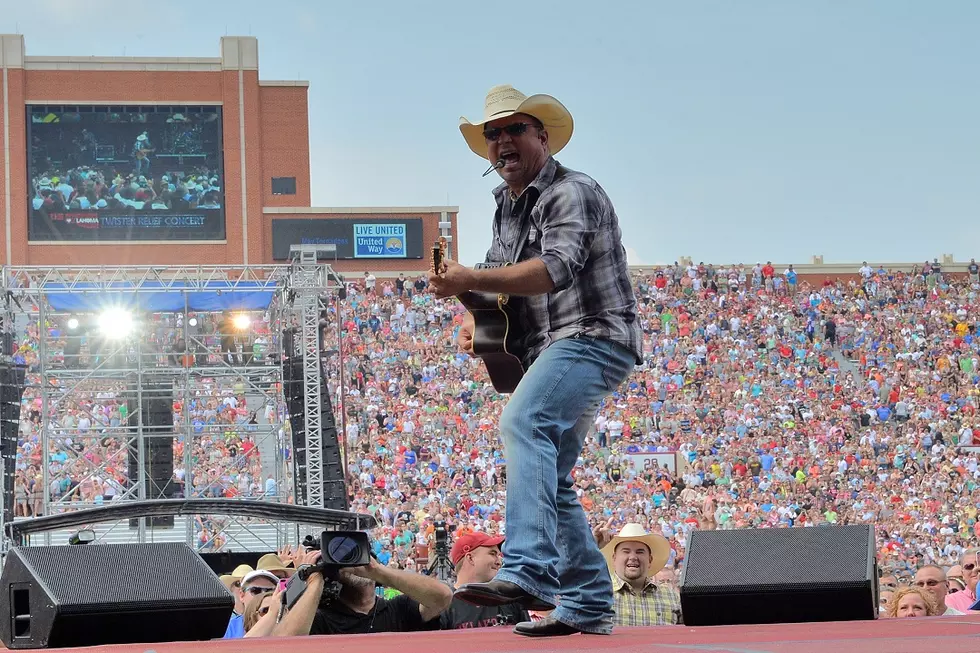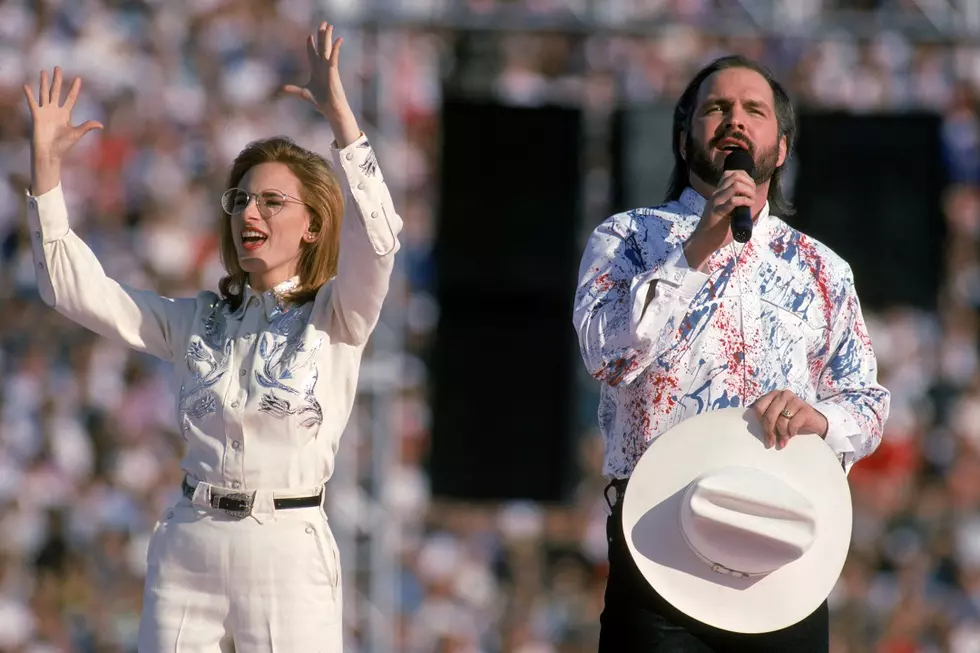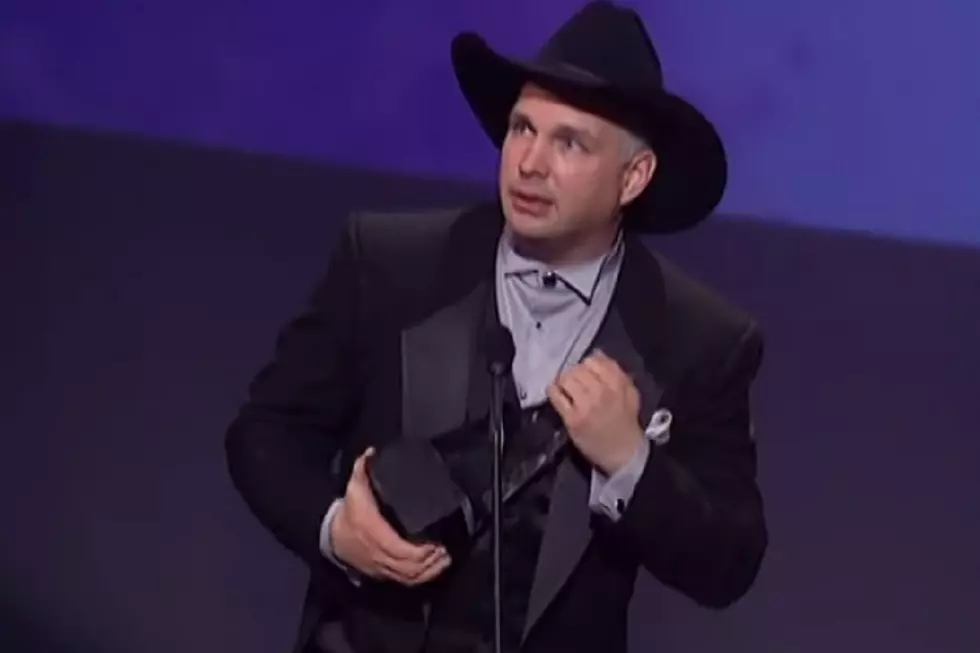
Garth Brooks Biographer Reveals Man Behind the Myth
 As a celebrity biographer, Patsi Bale Cox has explored the lives and careers of country music greats Tanya Tucker and Loretta Lynn, among others. With her latest book, 'The Garth Factor: The Career Behind Country's Big Boom,' she writes from an insider's perspective few biographers can equal.
As a celebrity biographer, Patsi Bale Cox has explored the lives and careers of country music greats Tanya Tucker and Loretta Lynn, among others. With her latest book, 'The Garth Factor: The Career Behind Country's Big Boom,' she writes from an insider's perspective few biographers can equal.
And while many may feel they know the real Garth Brooks, 'The Garth Factor' offers the seasoned music journalist the opportunity to set the record straight on various unexplored -- or misunderstood -- aspects of the entertainer's unparalleled career.
Patsi first met Garth while she was writing artist bios and press materials for the Nashville-based Gurley & Company, which handled public relations for Capitol Records, the label that signed the Oklahoma native in June 1988. She continued to work with the superstar until the release of his Wal-Mart-exclusive collection in 2005.
"I did all the writing that had anything to do with his music," says the Kansas native, who moved to Nashville from Denver in 1983, and in addition to Garth, Tanya and Loretta, has written books on Ralph Emery, Tony Orlando and talk show host Jenny Jones.
Patsi and Garth have remained friends through the years, and while in Tulsa, Okla., for a recent book signing, she spent time at the home of the retired performer, his wife Trisha Yearwood and his daughters, Taylor, August and Allie.
The Boot sat down with Patsi to talk about 'The Garth Factor' and to learn more about the man who inspired this unique biography, including what he said when he found out the book was being written, and how a simple statement from him became one of the most misinterpreted of his career.
What do you remember about your first meeting with Garth?
I first heard Garth when [publicist] Cathy Gurley gave me an advance copy of 'No Fences' (Garth's second album, which would go on to sell 20 million copies worldwide). She told me to listen to it and then go to meet with him the next day at [manager] Bob Doyle's office. I listened to the album and then the next day went over to Bob's office around noon. I went in and didn't see anyone, so I called out. Finally I heard a voice yelling from the back, 'Come on back here.' I went to the back and there was Garth. Everyone had gone to lunch and the secretary was starving, so Garth told her to go to lunch and he'd spot her. So for the first 30 minutes we talked, he was answering the phone, taking messages from people's kids and whoever else called, and it cracked me up. Anyone who had heard 'No Fences' knew what a big record it was going to be. At this time 'The Dance' [from Garth's debut album] was huge, the video was out and it was a smash.
What made you decide that this was the time to write and release the book?
After [label head] Jimmy Bowen left Capitol, Garth asked me if I would continue to work with him, which I did. I got to know his music tremendously, and appreciate his conscientiousness in listening to songs to record, and his attention to sequencing the songs on his albums. He also asked me to work on his project with Wal-Mart, and in 2006, he wanted me to go through his archives and write things for his website. I wrote and wrote for a year-and-a-half for him, but he could only use a fraction of what I did. There was all the research and the story there. As I went through everything, I saw so many misconceptions, and I thought, 'I've got to put this into a book!'
 Which aspects of Garth's career were high on your list of things to clarify, either because they had been misinterpreted or because the facts were just wrong?
Which aspects of Garth's career were high on your list of things to clarify, either because they had been misinterpreted or because the facts were just wrong?
Garth made the statement [during an interview with Barbara Walters] that money was no longer an issue, because he had enough money for his kids and grandkids. People turned that into a negative. I feel that he made a working-class statement. It was silly, the reaction to what he said. I understood immediately what he was talking about. The fact that he didn't have to worry anymore about money meant that now his art could be free; he could take chances. It's a great freedom to have. But people made it into 'Garth says he's rich.' The other thing I think is important to know about Garth -- and I saw this nearly every day with him -- I saw he tried as hard as he could to be normal. He fought the "star" thing to the extent of separating himself out and calling it the "Garth Brooks" thing. I saw him all the time making sure he didn't get sucked into that black hole. That's Elvis Presley territory. It starts making you uncomfortable. He told me at one point, maybe in 1993, 'I'm getting sick of seeing myself on magazine covers, and if I'm getting sick everybody else is, too.'
What kind of memories did writing the book bring back for you?
After 'The Dance' had been out, a friend of mine lost her husband and that song was a huge influence on her. I told Garth about that and told him she was going to visit me. I picked her up at the airport, and we went to a party for Garth. I had not talked to him in a month-and-a-half, but when he saw us come in, he walked straight across the room and he said, 'Patsi, is this the friend you were telling me about?' I said yes, and he immediately talked to her in a wonderful way about her loss. It was a stunning thing for him to remember me talking about her and relate to it. There was nothing phony about that. It was a very caring thing.
What was Garth's reaction when he found out you were writing the book?
I told him, 'I don't want your immediate involvement; that would change everything. Plus If I criticize anyone, it's going to come from me, not you. It will be my perception, and they can come and talk to me and not you.' He said to me, 'I'm not going to tell you what to do.' I doubt that he was thrilled, but he wasn't unhappy about it. He wasn't going to tell me to do it or not. That was my decision. His only question on anything was reopening old things, and that's why he never talks about it. I've been around artists and done interviews with artists who are still very angry with what happened in their career. That's not his style, he would rather let bygones be bygones.
And what was his reaction after the book came out?
He emailed me and said, 'How does it feel to have to answer all the questions for a change?' I emailed him back and probably told him twice what he wanted to hear! I told him about some of the interviews and actually told him I was having fun, and that radio still loved him. And they do.
You stayed with Garth and Trisha recently at their home in Oklahoma. How was that trip?
Just as I would have predicted, he arrived at the airport to get me in his pickup. Trisha is working on a new cookbook, so I was treated to some of the recipes she and h
er mother Gwen are testing. She prepared the best spaghetti casserole I have ever eaten, along with Garth's famous garlic bread. I saw no music memorabilia in Garth and Trisha's house -- no platinum records or awards. It's a family-friendly home with pictures his daughters have drawn on the fridge. The girls were all there, and they are such tremendous young women. Smart, talented, mature. [Garth's first wife] Sandy stopped by, and it was good to see her. These are clearly people who all like each other and have their daughters' well-being at the top of their priority list.
More From TheBoot







![Caroline Jones Shares Stories of ‘Grit and Perseverance’ on New ‘Superpower’ EP [Interview]](http://townsquare.media/site/204/files/2023/05/attachment-caroline-jones-superpower-ep.jpg?w=980&q=75)

